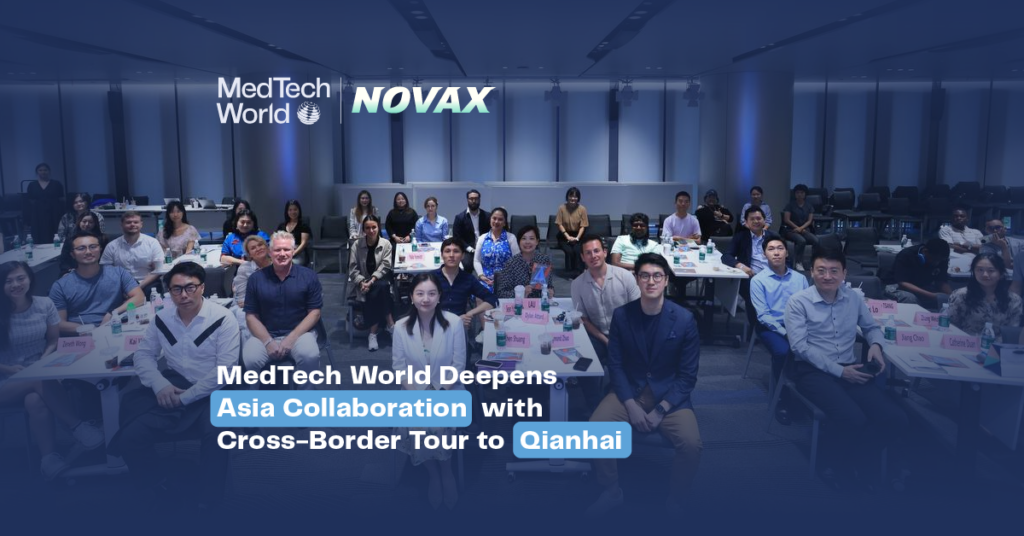
Michael Joe Cini
6th February 2023
Integrating AI and Big Data: A Leap Towards Personalised Care
In recent years, AI and Big Data are two major technologies that have brought about great developments in the medical field.
While much has been said about how AI stands as the backbone of the MedTech industry, enabling and improving the functionality of many medical devices, including self-monitoring and remote monitoring devices, much less has been said about big data and how it’s helping the industry achieve the set goals.
Big data addresses problems in healthcare. It improves operational efficiency, ensures quality outcomes, and empowers patients toward better disease management.
In a bid to cover grounds and bring the best to the MedTech community, one of the panel sessions during the Europe 2022 summit was titled “AI + Big Data = A Match Made In Heaven For Personalised Care.”
The session, which was moderated by Wiktoria Milczynska, Medical Doctor at NHS, had expert speakers, including Ken, Co-founder at UMNAI, Indra Joshi, Director at Palantir Technologies, Martin Kastelein, Data Analyst EEG Excellence, and Dr Conrad Attard, Lecturer and Researcher & Chair of Msc in Digital Health Board of Studies – University of Malta.
Personalised medicine is a type of care that’s customised to an individual. Over the last few years, this field has transitioned from ambition to reality. As a blooming idea and due to the high volume of data needed in this field, AI and Big Data have been suggested as two possible solutions that would allow for better delivery and development of personalised care.
The speakers took turns exploring the possibilities that lie within and ahead of this seemingly new field.
How do you see the use of AI and Big Data in personalised medicine?
Ken: AI and Big data will change the way care in medicine is delivered. How fast will it get there? How many unintended consequences will we have along the way? How many billions of dollars will we spend going up dead ends? Time will tell. When talking about AI and personalised care, the focus is a data science called the segment of one. Whenever we use data, we tend to take a segment and averages, but if we are going to personalise, we have to get down to the “segment of one” and this will take a lot of technological developments.
Indra Joshi: During the pandemic, the UK set up a vaccination program. Although many other countries did the same, the United Kingdom’s focus was knowing where the cohorts of people who might need the vaccination more were. Since it’s close to impossible to know those who were at risk but weren’t interested in taking the vaccine, looking at large set of data and understanding all the different factors enabled us to target populations and various areas with the vaccine delivery so that it could be better delivered. AI doesn’t only make a difference in the traditional sense of personalised care, but also identifies the cohorts that need a particular care at a particular time and allows its delivery.
Martin Kastelein: It looks like we are far from a point where we can use it in the medical field for personalised care. And it’s mainly on the way we collect and share data, and all the regulations which have made the adoption and use of many AI-based solutions difficult. As soon as these bumps are smoothed out, then there’s a high chance that algorithms will help us more. I believe, very strongly, that the first focus would be on the detection of certain diseases and not directly personalised care.
Is there any specific area in medicine that would benefit the most from the use of AI and Big Data in MedTech?
Indra Joshi: When we talk about healthcare, we traditionally focus on clinical care. However, there are other aspects which are important and mostly going to benefit from these new tools. The biggest low hanging is not in clinical but actually in business. The healthcare establishment, as much as it focuses on caring for the human race, is also a business that can’t afford to fail, as the core values of healthcare run on this aspect. How then can we make the healthcare business better? This is where I believe AI and Big Data can help a lot. On the clinical aspect, there are much more structured data, making medtech machine learning and AI use easier.
How can we overcome the challenges?
Ken: Bias in Data is a problem in the context of how machine learning currently learns. There are opaque algorithms which will learn from data and if the data is biased, they’ll learn the bias, and machine learning will amplify and accelerate the bias in practice. As long as machine learning models remain opaque, that would be a problem. Fortunately, the new wave of technology where machine learning models become transparent is set to reduce the bias in data. If you can determine where the biases are in the machine learning model, you can correct them before the post of impact.
Dr Conrad Attard: One of the reasons for these challenges is the inability to align the data being generated. Even in hospitals, it’s very hard to find a legal framework that unifies this data in a structured way. The systems and technologies are available, but unless the right software and companies work together, we are going to keep having these challenges.
Will AI and Big Data be able to bridge health inequalities by developing personalised medicine?
Martin Kastelein: Do we trust the machine to be smarter that the doctor? This is the question we need to first answer. Because, as long as we don’t trust the machine, we can create all the algorithms via charts row but then, it will still not be used.
Ken: A point of view is that the main reason we have biased data is because the humans that made the decision that was codified into that data were biased. So, in the actual sense, we don’t have a data problem but a human problem. Of course, I do think that to a degree, data machine learning will start to help us keep humans in check.




